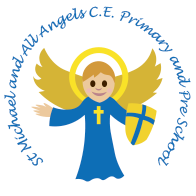E-safety at home
At Home
As parents you will know how important the internet and being online is to children – they use it to learn, play and socialise. The technology that your child uses can be daunting but there are a variety of ways that you can help your child to stay online.
CEOP (Child Exploitation and Online Protection)
CEOP helps any child or young person under the age of 18 who is being pressured, forced or tricked into taking part in sexual activity of any kind. This can be something that has taken place either online or in ‘the real world’, or both. The CEOP Safety Centre has clear information and advice on what can be reported to CEOP, the reporting process and what will happen if you do decide to make a report. You can visit the CEOP Safety Centre and make a report directly to CEOP by clicking the Click CEOP button.
If you are experiencing online bullying or something else online has worried you please speak to an adult you trust, or you can talk to Childline at any time on 0800 1111 or at www.childline.org.uk.
We have recently run a successful online parent workshop learning about online safeguarding and child exploitation, this was run by PACE (Parents Against Child Exploitation). If you would like information following this please contact Mrs Westby.
Here’s what you can do to keep your child stay safe while they are learning and having fun online. We've included the secondary school guidance here too for those of you with older children.
- Back to School - Social Media Posts
- Creating Digital Confidence
- Google Be Internet Awesome Digital Citizenship Safety Family Guide
- Google Digital Wellbeing Family Guide
- Internet Matters Tips Leaflet
- Internet Matters Guide Online Safety for Parents of Children 6-10 Years Old
- Online Gaming
- Parents social media and wellbeing workshop resource pack
- Safer Internet Week 2022 - YouTube
- Safer Internet Week 2022 - Digital world for everyone
- Safer Internet Week 2022 - Inspiring children to build a better digital world
- Set Parent Controls
- Share Aware Parents Guide
- Social Media and Security Apps
- Social Media Tips Leaflet
- Social Media and Wellbeing Parent Workshop Slides
- Talking about Cunning People Online
- Thinkuknow Primary Parents Helpsheet
- Thinkuknow Secondary Parents Helpsheet
Keeping safe on Google Classroom
These websites are used in school and will be useful to know about and access at home too.
-
Net Aware This website outlines different apps/games explaining what the content is, a brief description about the app and age appropriate ratings. The website also allows you to research how to add age specific restrictions to your child's account.
-
Thinkuknow A series of short interactive videos for both parents and children to watch explaining the different aspects of online safety.
-
CEOP CEOP helps any child or young person under the age of 18 who is being pressured, forced or tricked into taking part in sexual activity of any kind. This can be something that has taken place either online or in ‘the real world’, or both. The CEOP Safety Centre has clear information and advice on what can be reported to CEOP, the reporting process and what will happen if you do decide to make a report. You can visit the CEOP Safety Centre and make a report directly to CEOP by clicking the Click CEOP button below. If you are experiencing online bullying or something else online has worried you please speak to an adult you trust, or you can talk to Childline at any time on 0800 1111 or at www.childline.org.uk.
- Thinuknow The education programme from CEOP, a UK organisation which protects children both online and offline.
- Thinkuknow Cyber Cafe A friendly and interactive game for children to play. The game aims to provide the children with real life scenarios and support them in making the correct decision when using the internet.
- Childnet This website provides useful information and tips as to how you can keep your child safe online. Please talk to your child about the online games they are playing and as part of our Computing curriculum we are dedicated to teaching children about how they can keep themselves safe digitally and online.
- NSPCC This website explains how to set parental controls for mobiles/tablets, computers, home broadband etc.
- UK Safer Internet Centre Online safety tips, advice and resources to help children and young people stay safe online. Including parents guides to safety tools on popular devices.
- Internet Matters Information from the four largest internet service providers, helping parents keep their children safe online. As well as providing guides on setting new devices up safely.

